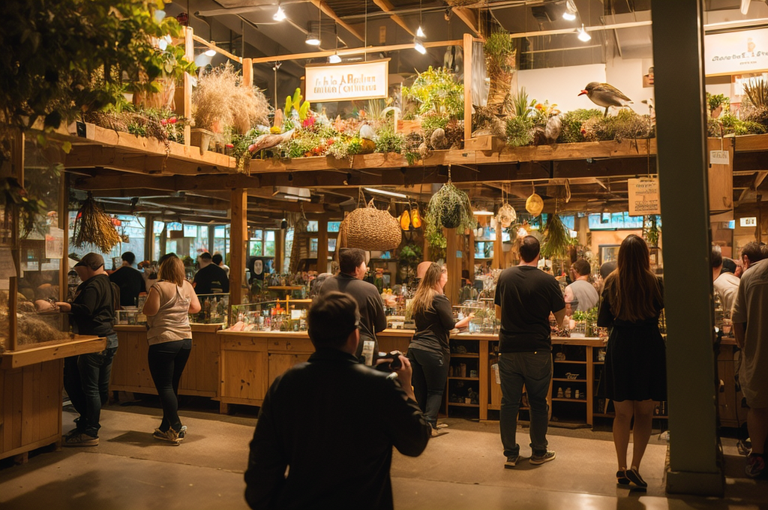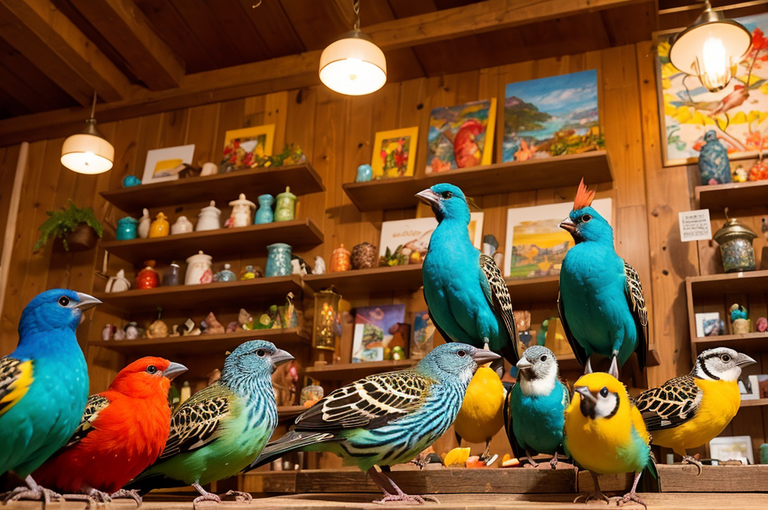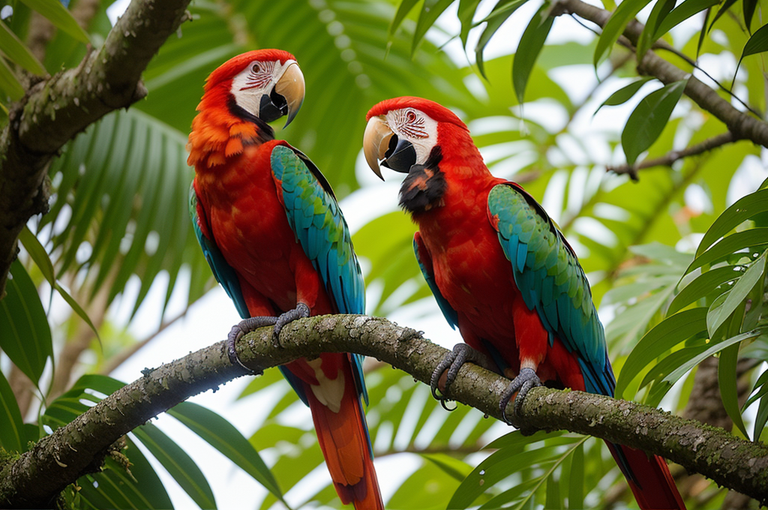Exploring Oriole Feeders: Types, Accessories, Maintenance, and More

Oriole feeders, bird food, and accessories are available from Wild Birds Unlimited. Types of food vary by season and bird preference. Keeping feeders clean and protected is essential.
Understanding Oriole Feeders
As a seasoned ornithologist and an ardent wild bird enthusiast, there’s nothing quite like the joy of seeing an oriole up close in its natural habitat, and an intrinsic part of that experience is getting familiar with oriole feeders.
Meaning and Basics of Oriole Feeders
An oriole feeder is not just a vessel for providing nourishment, it’s a bridge connecting us to the avian world, inviting these enchanting creatures to share their regal beauty with us. They’re designed to cater to the specific needs of certain bird types, in this case, orioles, maintaining a perfect equilibrium of functionality and aesthetics. These feeders facilitate us in learning what not to feed wild birds, contributing to their well being.
Various Design and Size Aspects
Peering into the world of oriole feeders, the diversity in designs and sizes is bound to leave you awestruck. Each unique design caters to different requirements, ingeniously adapted and inspired by orioles’ feeding habits and foraging tendencies. The size aspects of these feeders play a significant role in attracting the orioles and providing ease for them to perch and feast.
User-Friendliness and Cleaning Ease of Oriole feeders
What I’ve come to truly appreciate about these feeders is their user friendly nature. Beyond their purpose of attracting these vividly hued birds, the fact that they simplify our noble pursuit while respecting the natural order is praiseworthy. Moreover, these feeders are delightfully easy to clean, ensuring the feeder occupants’ health and hygiene.
Through this lens of understanding, oriole feeders cease to be mere containers of bird sustenance. They’re the embodiment of our connectivity to the spectacular species we share our world with. As the dawn beckons us into another day filled with avian wonders, knowing such intricacies allows me to appreciate these bird friendly inventions at an even more profound level.

Oriole Feeder Bird Food
The narrative beneath the captivating dance of the orioles as they flit to and fro, savoring their sustenance has always enticed me to delve deeper. Who would have thought that grape jelly could bring such joy to these small luminous creatures?
Feeder Food Types: Jelly, Mealworms, Nectar
There’s a dignified sophistication in the eclectic culinary preferences of the oriole. They savor the sweet tartness of grape jelly, the crunchy satisfaction of mealworms, and the decadent lushness of nectar. Each presents a unique dining experience that speaks volumes about the gourmet tastes of these splendid birds.
Season-Influenced Food Preferences
Indeed, what we choose to feed these beguiling creatures matter. Not all dishes are apt for each season, especially, what to feed wild birds in winter, which is something we all ponder about. Their dietary preferences are fine tuned by the rhythm of the passing seasons. The song of winter calls for different sustenance than the melody of spring. We must be aware, observant, and translate the rhythms of nature into suitable offerings for their feeders.
Feeder Products and Bird Food Availability
In an interesting twist of irony, the very objects designed to hold these delicacies, the feeders, often come bereft of the bird food itself. A glaring disconnect that only serves to amplify the importance of our role in providing nutritious, suitable food for our avian friends.
An enchanting world awaits beyond your window sill. The very act of bird feeding isn’t mere charity, but a shared story of survival and adaptability. Through the choices we make, the food we offer, echoes our sincere appreciation for the presence of these charming creatures in our life, and our commitment to safeguarding their wellness.

Oriole Feeder Accessories
As an ornithologist and a dedicated bird lover, I’ve found that oriole feeder accessories are as imperative to attract these beautiful birds as what wild birds eat. From weather domes to nectar port brushes to bee guards, these are not simply add ons, but necessities to maintain an appealing and bird friendly feeder.
List of Necessary Accessories
When it comes to oriole feeders, some essential accessories come to mind. Weather domes, nectar port brushes, and bee guards are all paramount in creating an amicable oriole haven. I have observed the significance of each one in my backyard, where they collectively grace my oriole feeder with their unique roles.
Roles of the Accessories
Each accessory plays its distinct role. Weather domes protect the food from winds, rains, and harsh sunlight, thereby maintaining the freshness of the bird food. Nectar port brushes help keep the feeding ports spic and span a clean oriole feeder is always more attractive to the birds.
Importance of Bee Guards for Oriole Feeders
In my observations, bee guards emerge as the unsung heroes. They serve a pivotal function in keeping the bees and wasps at bay. Simultaneously, they ensure that the orioles can enjoy their nectar uninterrupted. Without these bee guards, it’s challenging to keep these insects away, and their intrusion can discourage sweet nectar loving orioles from visiting the feeder.
Therefore, incorporating these accessories into your oriole feeders not only invites these mesmerizing birds to your backyard but also provides them with a safe and comfortable environment. It’s been a consistent discovery in my bird watching adventures that taking care of these seemingly minute details can create a significant difference to the aesthetic of the aviary world.

Maintenance of Oriole Feeders
The Importance of Cleaning the Feeder
Just like a lark singing its heart out at the break of dawn, maintaining clean feeders is an essential aspect of my endeavors as a bird lover and observer. The safety and health of these finely feathered creatures lies in the small acts of cleaning feeding ports and providing them the food they need. Quite pose the question what will wild birds eat? and one will often realize it’s about more than just sustenance, but also about serenity of their feeding spots.
Tools for Cleaning a Feeder
A poet might find charm in a quill, but the bird enthusiast in me finds beauty in unlikely tools – like an innocuous Nectar Port brush. This sturdy friend, and other such delicate tools, helps maintain the feeder’s integrity and cleanliness. It’s a simple device with profound impact on the little singing orioles we cherish and admire.
Use and Effectiveness of Nectar Port Brush for Cleaning
In a world where every wing beat echoes in the orchestra of nature, maintaining a bird’s feeder is not dissimilar to playing a crucial instrument in that grand symphony. The Nectar Port Brush, agile in its design, gets into the intricate moulds of the feeder, wiping away the remnants of yesterdays’ feasts, ensuring the next melody from the orioles is a song of joy.
Much akin to the meticulous journey of a migrating bird, caring for these feeders is a constant endeavor. Yet it is deeply rewarding, much like every discovery in the avian world. The love we pour into these acts of cleaning are direct mirrors of the warmth and joy we receive from this lovely interaction with nature.
Key Takeaways
Choosing a suitable feeder for wild birds, such as the oriole, is more than an aesthetic decision—it’s one deeply rooted in the realms of design, size, and user friendliness. As with preparing a hearty meal for the guests who will be joining, it’s crucial to consider what wild birds eat. I’ve found that correct bird food and accessories can tremendously enhance their flying visit.
Choosing a Suitable Oriole Feeder
Not just any feeder can coax the mellifluous melodies from an oriole—beauty, after all, demands a stage that’s equally bewitching. When choosing this critical piece of infrastructure for our feathered troubadours, considerations such as design, size, and usability play an important role. It’s about building a little sanctuary, a refuge, a safe space where birds can nourish themselves, unthreatened and unbothered—a space where you can almost hear them whisper, ”Here, I am home.”
Importance of Correct Bird Food and Useful Accessories
Bird feed isn’t a one size fits all. It’s not a place where one kind of seed checks all the boxes because, like us, birds have preferences; imagine if someone insisted that you only eat brussel sprouts, for instance. Considering what to feed wild birds in winter, ensuring that the feed is suitable for the season, and accommodating the dietary quirks of various species can significantly enhance your backyard’s popularity amongst the winged population. Making a checklist of what not to feed wild birds can also prevent unwanted avian health issues.
Need for Regular Cleaning and Maintenance
Just as a clean, well kept home is conducive to our well being, the same applies to bird feeders. Regular cleaning and maintenance can significantly impact birds’ health. A poorly maintained feeder can harbor disease and deter avian visitors. So, if you are wondering what will wild birds eat, let’s not forget it’s not just the quality of food that matters—it’s also about the quality of serving and the space where they feast.
Remember, my friends, every addition to your bird feeding regime should be informed, thoughtful, and nurturing, for that’s the language birds understand best.


